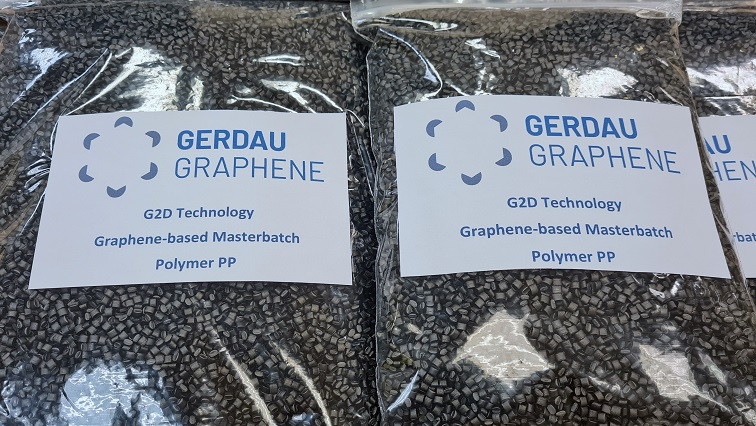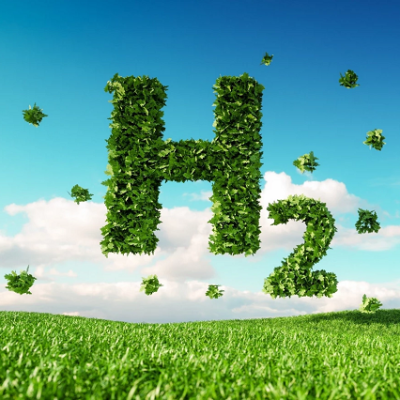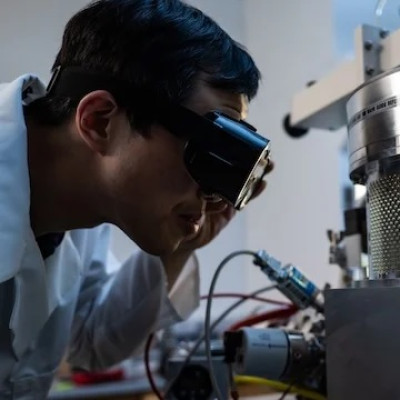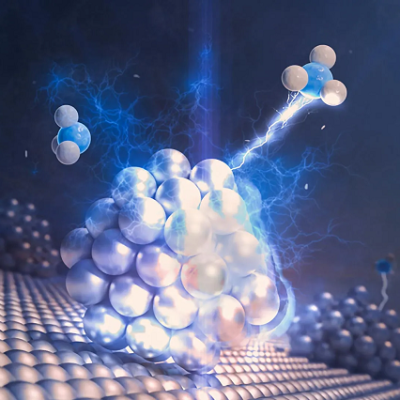In partnership with Brazil’s EMBRAPII SENAI/SP Advanced Materials Unit, Gerdau is developing graphene additives for virgin resins, as well as post-industrial and post-consumer recycled plastics and polymers, including PP, PE, polystyrene (PS), polycarbonate (PC), PVC, and more.
The company has recently created new graphene-enhanced polymeric resin masterbatch formulas for polyethylene (PP) and polypropylene (PE). The first commercial deliveries are expected this month, with the masterbatches currently being trialled in a series of industrial applications in Gerdau’s factories.
Speaking to Resource, Alexandre Côrrea, CEO of Gerdau Graphene detailed the potential uses of the graphene-enhanced plastics: “The masterbatches are suitable for application in several polymers processing methods, as we can develop different formulations for different uses.
“For example, one customer (which we cannot name publicly at this time) is using our masterbatches to produce flexible packaging for consumer goods. Our masterbatch is not restricted to flexible film products, and can also be used for PE and PP rigid injection molded, blown molded, thermoformed, or extruded parts.
“For now, we are focusing on the main applications for PE and PP in the market, so when it comes to PE, most of our developments are related to flexible film extrusion, and as for PP, we have been developing solutions for parts produced by injection molding.”
Discovered in 2004, Graphene is a one to ten atom-thick sheet of densely-compacted carbon that can be modified for various uses and added to industrial materials. The material can be mixed with plastics, lending its strength to the plastic matrix, as well as increasing barrier properties against liquids and gasses, and boosting protection from weathering, oxidation, and UV light. Graphene’s addition also increases electric and thermal conductivity.
Côrrea added: “Plastic is a critical life-saving material that is now used in almost all products in every industry around the world, and its invention has radically transformed how humans live.
“The biggest challenge we face is how to make plastics better by improving its material qualities, reducing costs, and increasing sustainability throughout its lifecycle. We are now addressing all of these goals.
“By adding specialized graphene additives to thermoplastic recipes, plastic producers can create stronger, more durable plastic products at a fraction of the cost and with far less petroleum and fewer raw materials needed. Because less plastic is needed for final products, less plastic becomes post-consumer waste.
“There are also downstream effects, including reductions in manufacturing waste, energy consumption, transportation, and more. And, circularly, plastics can be recycled into graphene and then reused.”
According to Gerdau’s estimates, when the masterbatches are used, as much as 30 per cent less raw plastic material is needed to create the final PP and PE products with the same quality and final properties as traditional plastic. This can also result in up to a 30 per cent total weight reduction.
Items produced with PP/PE containing Gerdau’s masterbatches possess the same recyclability as traditional plastics. However, Côrrea notes, “because graphene increases the mechanical properties of polymers, it is possible to incorporate a higher percentage of recycled graphene-enhanced PP/PE content into new final applications.”
Read the original article on Resource Magazine.







